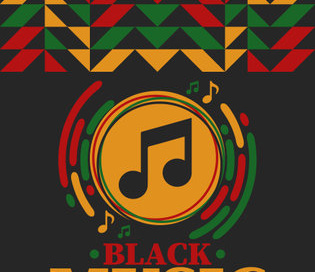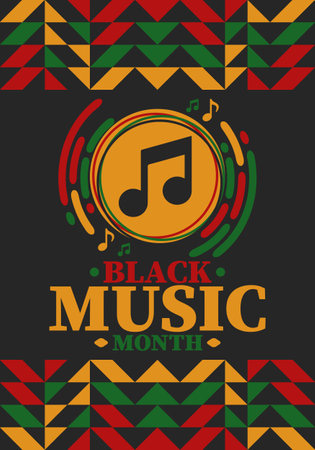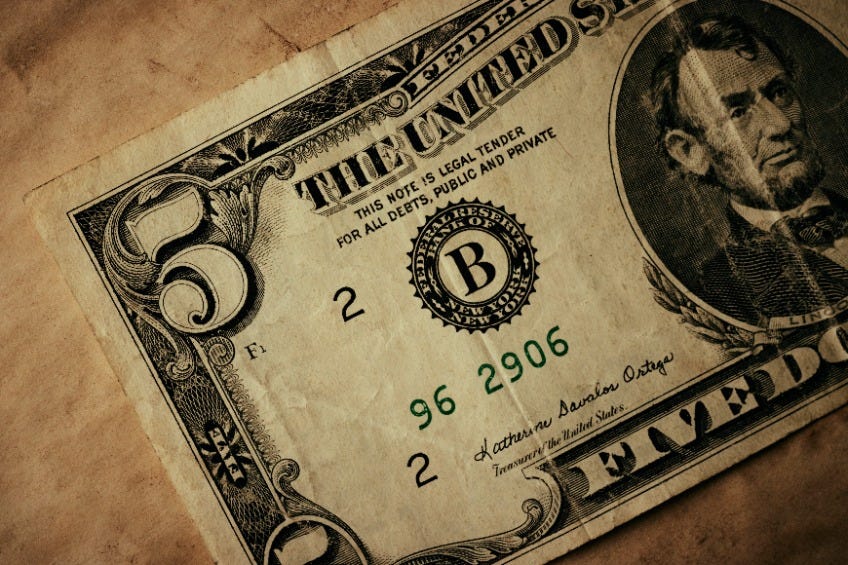Today In Black History: June is Black Music Month
The History and Meaning of This Official Celebration
Issue #864 Today In Black History, Monday, June 2, 2025
If you like us, REALLY like us, please click the little heart “Like” button at the top of this post!
Buttons:
Heart: Like Bubble: Comment Arrow Up: Share Arrows Circle: Restack
If you like us, REALLY like us, please click the “Like” button at the top of this post!
Your “Likes” mean a LOT to us! We appreciate your support!
Buy Pam a cup of Colombian Coffee!
Engage with us and our posts on Substack Notes, where we publish new content almost daily.
Our June 2025 subscriber goals are 400 new free subscribers and 80 new paid subscribers! You can help us reach our goal!
We Are Speaking is a reader-supported publication. To receive new posts and support our work, consider becoming a free or paid subscriber.
Follow Pam on Bluesky, the best “X” alternative.
Follow Keith on Bluesky, the best “X alternative.
Independent Authors and Creative Professionals: Check out my valuable books and courses on Branding and Marketing just for you via Pam Speaks 2 You.
Black Music Month was officially declared by President Jimmy Carter in 1979 and reinvigorated by the efforts of Dyana Williams, Kenny Gamble, and Ed Wright. It has since become an annual tribute to the achievements and contributions of Black musicians. During this month, “Today In Black History” will reflect on the music that has been the soundtrack to movements, a comfort in times of unrest, and a celebration in times of triumph, at least since the mid-19th century.
The history of Black music is replete with expressions of joy, struggle, innovation, and identity. From the soulful melodies of Motown to the rhythmic beats of hip-hop, from the stirring anthems of gospel to the invigorating riffs of jazz, Black artists have played an integral role in shaping the musical landscape.
Especially since the current administration is trying to erase all mentions of Black people, their history, and their contributions, there must still be a growing recognition of how deeply ingrained Black music is in the very fabric of global soundscapes, influencing everything from rock and country to electronic, opera, classical, and pop.
During this month, “Today In Black History” will shine a light on the trailblazers who have paved the way for today's artists. Icons like Louis Armstrong, whose trumpet serenades broke racial barriers, and Nina Simone, whose voice echoed the calls for civil rights, remain beacons of inspiration. We will also recognize contemporary artists such as Beyoncé, Kendrick Lamar, and Alicia Keys, who continue to push the boundaries, weaving social commentary into their music and echoing the narratives of their predecessors.
Understand that celebrating Black Music Month is not confined to the United States. This African diasporic music has laid the foundation for numerous music genres worldwide, fostering a rich exchange of culture and ideas. Afrobeat, reggae, and samba are just a few examples of how Black music has transcended boundaries, melding into vibrant global movements.
Black Music Month is a celebration of the past, present, and future of an unparalleled genre that has not only entertained but also empowered and united all people around the globe.
Today In Black History
In 1834, the Fifth National Black Convention was held in New York with fifty delegates from eight states.
In 1863, Harriet Tubman led Union Army guerrillas into South Carolina and freed nearly 800 slaves.
In 1875, James Augustine Healy was consecrated in Maine as the first Black Roman Catholic Bishop in the United States.
In 1943, the Tuskegee Airmen 99th Pursuit Squadron flew its first combat mission, ascending on enemy positions on the island of Pantelleria, Italy.
In 1950, the U.S. Supreme Court outlawed segregation on dining cars in interstate transportation.
In 1971, Captain Samuel Lee Gravely, Jr. became the first Black Admiral in the U.S. Navy.








